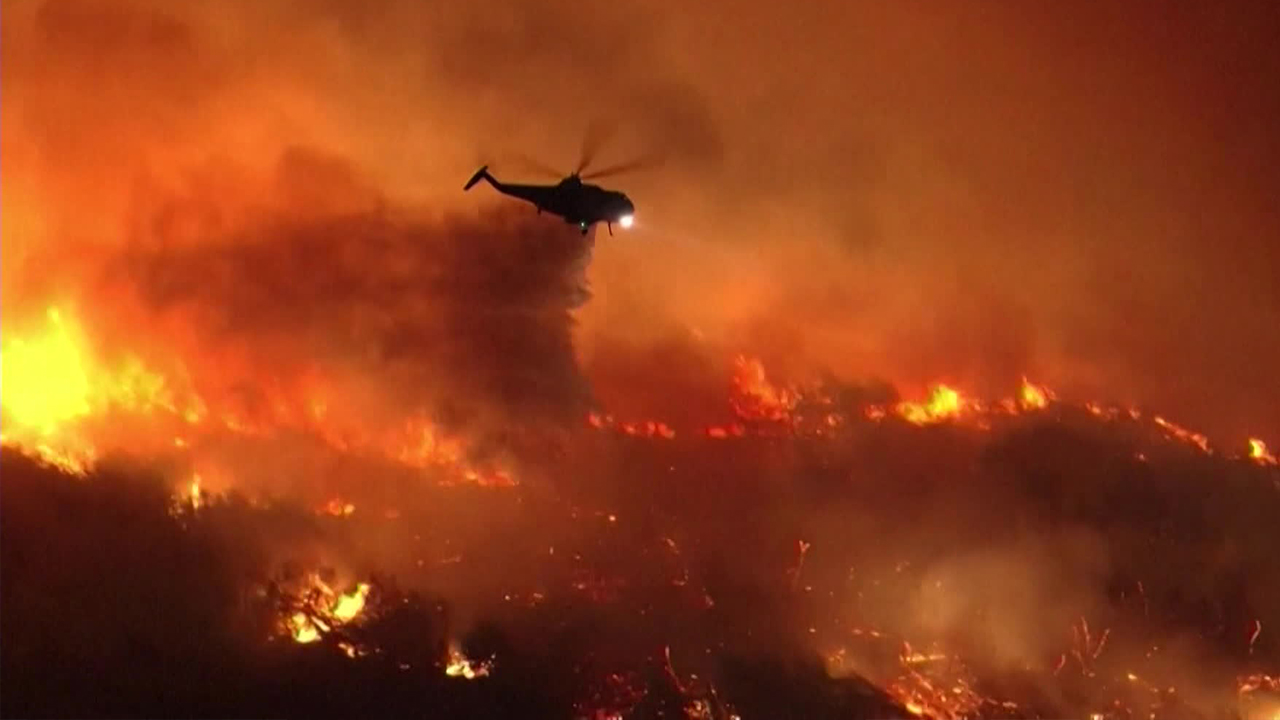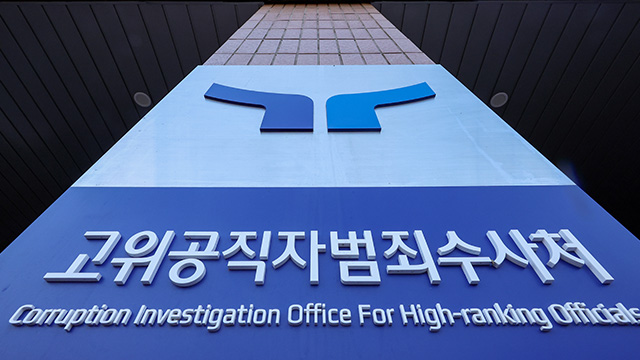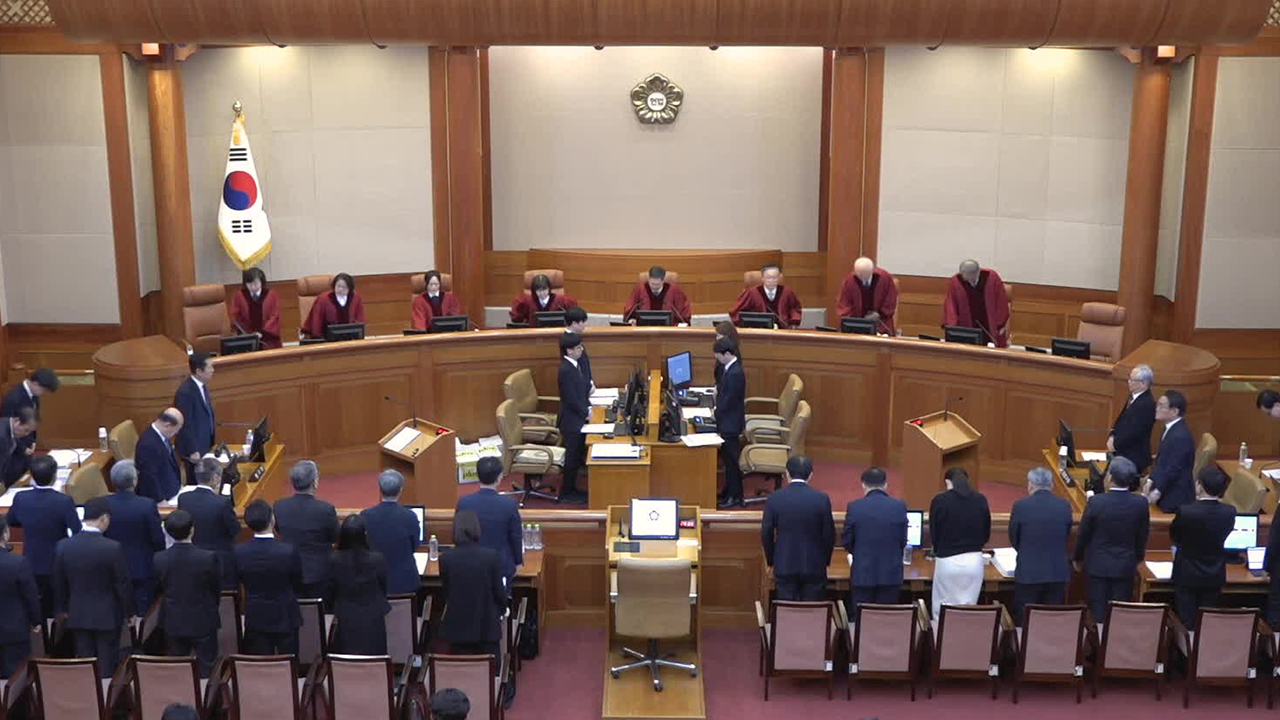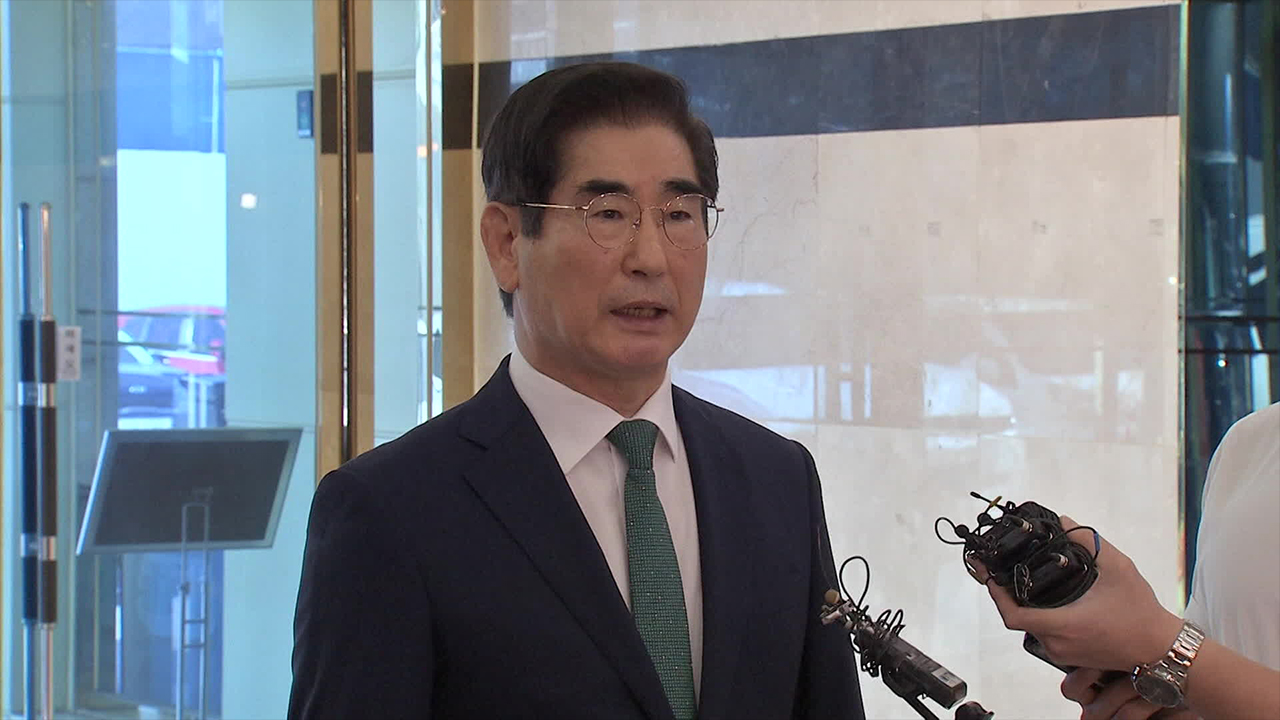Risk of dry forest fires increasing
입력 2025.01.17 (02:15)
읽어주기 기능은 크롬기반의
브라우저에서만 사용하실 수 있습니다.
[Anchor]
The wildfires in Los Angeles, USA, which are causing massive damage, are largely attributed to extremely dry weather.
In South Korea, there are warnings to be cautious of large wildfires, as many areas have recorded zero precipitation this winter.
Shin Bang-sil reports on the weather.
[Report]
The LA wildfires have been ongoing for over a week, turning the streets into ruins.
The reason the fires are difficult to extinguish is that the rainfall near LA has been only a few millimeters over the past six months, making it extremely dry.
What about us?
Most of the snow and rain this winter has been concentrated in the western regions.
The cumulative precipitation in Honam and Chungnam was around 50mm, but in other areas, it fell below 10mm.
Cities like Busan, Ulsan, and Daegu recorded 0mm, making them extremely dry and at high risk for large wildfires.
[Kwon Chun-geun/Ph.D, National Institute of Forest Science Wildfire Research Division: "In the southern regions, there is almost no rainfall. So, more than half of the wildfires that have occurred this year are concentrated in the southern areas."]
The moisture content in the fallen leaves in the Yeongnam region has dropped below 10%, and at this level of dryness, an average of about 10 wildfires can occur daily.
As the wildfire risk level across the country remains at high, forecasts suggest that the wildfire risk index will be high in Yeongnam and Gangwon this month, and in the metropolitan area next month.
[Jung Ji-hoon/Professor, Sejong University Department of Environmental Energy Space Convergence: "It is expected that rainfall around Korea will decrease, and it will be somewhat dry in spring, so the wildfire risk is expected to be high from late winter to spring."]
Most wildfires start from minor negligence, so it is important to avoid burning trash or agricultural byproducts and to refrain from cooking or smoking in the mountains.
This is Shin Bang-sil from KBS News.
The wildfires in Los Angeles, USA, which are causing massive damage, are largely attributed to extremely dry weather.
In South Korea, there are warnings to be cautious of large wildfires, as many areas have recorded zero precipitation this winter.
Shin Bang-sil reports on the weather.
[Report]
The LA wildfires have been ongoing for over a week, turning the streets into ruins.
The reason the fires are difficult to extinguish is that the rainfall near LA has been only a few millimeters over the past six months, making it extremely dry.
What about us?
Most of the snow and rain this winter has been concentrated in the western regions.
The cumulative precipitation in Honam and Chungnam was around 50mm, but in other areas, it fell below 10mm.
Cities like Busan, Ulsan, and Daegu recorded 0mm, making them extremely dry and at high risk for large wildfires.
[Kwon Chun-geun/Ph.D, National Institute of Forest Science Wildfire Research Division: "In the southern regions, there is almost no rainfall. So, more than half of the wildfires that have occurred this year are concentrated in the southern areas."]
The moisture content in the fallen leaves in the Yeongnam region has dropped below 10%, and at this level of dryness, an average of about 10 wildfires can occur daily.
As the wildfire risk level across the country remains at high, forecasts suggest that the wildfire risk index will be high in Yeongnam and Gangwon this month, and in the metropolitan area next month.
[Jung Ji-hoon/Professor, Sejong University Department of Environmental Energy Space Convergence: "It is expected that rainfall around Korea will decrease, and it will be somewhat dry in spring, so the wildfire risk is expected to be high from late winter to spring."]
Most wildfires start from minor negligence, so it is important to avoid burning trash or agricultural byproducts and to refrain from cooking or smoking in the mountains.
This is Shin Bang-sil from KBS News.
■ 제보하기
▷ 카카오톡 : 'KBS제보' 검색, 채널 추가
▷ 전화 : 02-781-1234, 4444
▷ 이메일 : kbs1234@kbs.co.kr
▷ 유튜브, 네이버, 카카오에서도 KBS뉴스를 구독해주세요!
- Risk of dry forest fires increasing
-
- 입력 2025-01-17 02:15:23

[Anchor]
The wildfires in Los Angeles, USA, which are causing massive damage, are largely attributed to extremely dry weather.
In South Korea, there are warnings to be cautious of large wildfires, as many areas have recorded zero precipitation this winter.
Shin Bang-sil reports on the weather.
[Report]
The LA wildfires have been ongoing for over a week, turning the streets into ruins.
The reason the fires are difficult to extinguish is that the rainfall near LA has been only a few millimeters over the past six months, making it extremely dry.
What about us?
Most of the snow and rain this winter has been concentrated in the western regions.
The cumulative precipitation in Honam and Chungnam was around 50mm, but in other areas, it fell below 10mm.
Cities like Busan, Ulsan, and Daegu recorded 0mm, making them extremely dry and at high risk for large wildfires.
[Kwon Chun-geun/Ph.D, National Institute of Forest Science Wildfire Research Division: "In the southern regions, there is almost no rainfall. So, more than half of the wildfires that have occurred this year are concentrated in the southern areas."]
The moisture content in the fallen leaves in the Yeongnam region has dropped below 10%, and at this level of dryness, an average of about 10 wildfires can occur daily.
As the wildfire risk level across the country remains at high, forecasts suggest that the wildfire risk index will be high in Yeongnam and Gangwon this month, and in the metropolitan area next month.
[Jung Ji-hoon/Professor, Sejong University Department of Environmental Energy Space Convergence: "It is expected that rainfall around Korea will decrease, and it will be somewhat dry in spring, so the wildfire risk is expected to be high from late winter to spring."]
Most wildfires start from minor negligence, so it is important to avoid burning trash or agricultural byproducts and to refrain from cooking or smoking in the mountains.
This is Shin Bang-sil from KBS News.
The wildfires in Los Angeles, USA, which are causing massive damage, are largely attributed to extremely dry weather.
In South Korea, there are warnings to be cautious of large wildfires, as many areas have recorded zero precipitation this winter.
Shin Bang-sil reports on the weather.
[Report]
The LA wildfires have been ongoing for over a week, turning the streets into ruins.
The reason the fires are difficult to extinguish is that the rainfall near LA has been only a few millimeters over the past six months, making it extremely dry.
What about us?
Most of the snow and rain this winter has been concentrated in the western regions.
The cumulative precipitation in Honam and Chungnam was around 50mm, but in other areas, it fell below 10mm.
Cities like Busan, Ulsan, and Daegu recorded 0mm, making them extremely dry and at high risk for large wildfires.
[Kwon Chun-geun/Ph.D, National Institute of Forest Science Wildfire Research Division: "In the southern regions, there is almost no rainfall. So, more than half of the wildfires that have occurred this year are concentrated in the southern areas."]
The moisture content in the fallen leaves in the Yeongnam region has dropped below 10%, and at this level of dryness, an average of about 10 wildfires can occur daily.
As the wildfire risk level across the country remains at high, forecasts suggest that the wildfire risk index will be high in Yeongnam and Gangwon this month, and in the metropolitan area next month.
[Jung Ji-hoon/Professor, Sejong University Department of Environmental Energy Space Convergence: "It is expected that rainfall around Korea will decrease, and it will be somewhat dry in spring, so the wildfire risk is expected to be high from late winter to spring."]
Most wildfires start from minor negligence, so it is important to avoid burning trash or agricultural byproducts and to refrain from cooking or smoking in the mountains.
This is Shin Bang-sil from KBS News.
-
-

신방실 기자 weezer@kbs.co.kr
신방실 기자의 기사 모음
-
이 기사가 좋으셨다면
-
좋아요
0
-
응원해요
0
-
후속 원해요
0















이 기사에 대한 의견을 남겨주세요.